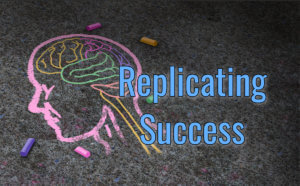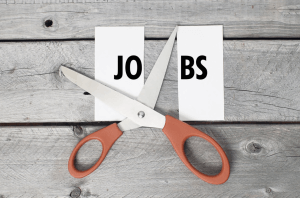Introduction
As traders, we tend to learn the technical stuff and focus our attention on improving our technical analysis. Which is ok, but often, learning trading psychology is neglected. And at the end of the day, it is you who’s in charge of decision making, and you are the one entering your orders.
In my mind, mastering trading psychology is more important than learning chart patterns, complex wave theories, Fibonacci levels, etc. Even a layman can spot a trend, but then the decision has to be executed – do you buy or sell?
Our emotions govern decision making as they impact our rational thinking. You can do an exceptional technical analysis, but you may still lose money. You can do a poor technical analysis and still earn money.
The question imposes: why are traders who are knowledgeable about technical analysis still lose money?
The answer lies in the difference between real life and the markets and the ways we are conditioned to behave in real life vs. the mindset that is needed to be profitable in the markets.
Real-life vs. the markets
Cutting your loses
In real life, people are not accustomed to losing. If your finger gets trapped inside the elevator hole, you would probably turn on the alarm, stop the entire building from using the elevator and call the fire brigade to help save your finger, right? You wouldn’t just cut it off and continue with your day because, in real life, fingers don’t grow back.
In the market, if your finger gets caught and you try to save it with your other hand, the other hand will get trapped as well, and you will lose both hands. So the solution would be to just cut your finger, as in the markets, fingers do grow back!
As you may have figured, the Finger analogy is when your position is starting to go against you. If you sit there and wait for it to bounce back, hoping you wouldn’t lose your money, you will lose more money. And the only solution is to cut your losses early on and have confidence that you will be in profit next time when you will be compensated for your losses and be in profit overall.
So this response has to be learned, as we have been conditioned to behave and think differently.
You shouldn’t be right, you should be in profit.
Traders often feed their ego with their good analysis. Your ego tends to think that you should always be right and that being wrong is a very, very bad thing. That can sometimes create a bias rationale. For example, you have done tons and tons of research, and your fundamental and technical analysis; so, you have concluded that it’s a buy. You put your buy order.
After a day or two, you are in profit, good. But on the third day, the trade is starting to go against you. You keep saying to your self “it’s only a correction” I have done my research, and this can’t go down further. But it does. Even though you see you are losing money, you tend to keep your position opened. Why is that? Your brain creates a bias. It can’t even see an alternative bearish scenario, so you become loyal to yourself, as your ego also keep you congruent.
In real life, loyalty and congruency are great. If we didn’t have those traits, we would all be unreliable and spinless beings, and society as we know it would fall apart. But in the markets, you have to be able to adapt.
This is not about being right, you are not a fortune teller, you are a trader.
Numbing your emotions and the difference between knowledge and behavior
Expanding your knowledge about financial markets and the ways of analyzing them is great, but you have to internalize it into your behavior patterns. For example, I smoke cigarettes, and I know that they are harmful. The knowledge about the harmful effects of smoking is not overpowering my internal emotions of the desire to smoke.
Another example is exercise. We all know that we should eat healthy food and exercise. But the fast-food tastes good, and our emotions are governing our decision making, and we end eating that burger. Our laziness chains us to our beds, and we hit that snooze button and sleep an extra hour, leaving us without any time to run in the morning.
That is why we, as traders, need to suppress our emotions of greed and fear that can impact our decision making.
Patience
In the modern-day world, we are bombarded with information through social media. If something doesn’t appear interesting, we are hesitant to watch it to the end. That conditions us to follow our attention and not to be in charge of it. And that’s ok in real life, as our attention is limited, and with so much out there, it would be impossible to keep track of everything.
But in the market, you have to leave that urge behind to know if it is a buy or sell, and get it over with. Trading is an activity.
Conclusion
The market environment is diametrically different from the real-life environment – it’s totally unpredictable, and we need a totally different mindset to overcome the challenges of surviving in that environment.
In real life, you would go to a train station ask a clerk where the next train is going, and if you like the direction, you would sit on that train, take a nap, and when you wake up, you would arrive at your desired destination. It is predictable, and we are accustomed to that predictability, and our behavior has been built around that predictability.
You would check your indicators in markets, make your projections, ask people what they think, where the train is heading, and still won’t have a definitive answer.
That’s why mastering trading psychology is so important. It is the way to help you find the right mindset to manage the unpredictable nature of the markets, and here at Forex Academy, we are here to help with our services.





